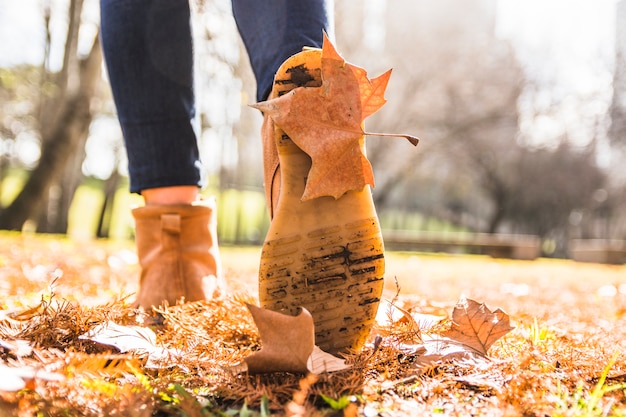Autumn Pet Health Tips for Northern Georgia

Autumn Pet Health Tips for Northern Georgia
As the colorful leaves of autumn arrive in Northern Georgia, many pet owners find themselves wondering how to best support their dogs and cats through the seasonal shift. Even though October often brings milder temperatures, the transition from summer’s heat to brisker fall mornings can impact your pet’s health and comfort in surprising ways. At Express Vets, our experienced veterinary team is dedicated to making sure your pets remain healthy and happy year-round. Through a combination of preventive care, timely wellness exams in Northern Georgia, and practical home adjustments, you can help your furry companions thrive this fall.
In this guide, we’ll walk you through important autumn pet health tips tailored for Northern Georgia’s unique climate. We’ll discuss how to spot early warning signs if your pet isn’t feeling their best, explore common seasonal concerns, provide guidance on adjusting routines, and explain when it’s time to schedule a visit with our veterinary professionals. Whether you’re preparing for more time outdoors or want to safeguard against fall-specific risks, our advice will help you confidently care for your pet this season. Remember, Express Vets is always here as your trusted vet near me for comprehensive care.
Recognizing Signs of Seasonal Changes in Your Pet
As autumn settles over Northern Georgia, you might notice new behaviors or subtle health changes in your pet. Recognizing the signs that your pet needs extra attention this season is the first step toward keeping them comfortable and well.
Common Symptoms That May Indicate Seasonal Issues
When temperatures fluctuate and allergens shift, symptoms can surface that often confuse pet owners. For example, your dog or cat may start scratching more frequently, indicating a possible increase in environmental allergies or dry skin. Other signs to watch for are sneezing, watery eyes, or a sudden decrease in activity levels, which can sometimes result from cooler air or hidden joint discomfort. Pets may also experience digestive changes if their routine is disrupted by holiday foods or more time indoors. Additionally, a dull coat, increased shedding, or changes in appetite can signal that your pet’s body is adjusting to the new season.
Behavioral Changes to Watch For
Autumn’s shorter days can affect your pet’s mood and energy. Key behavioral changes include increased sleeping, reluctance to go outdoors on chilly mornings, or even anxiety from more time spent inside. Some pets may become restless or display signs of boredom without the usual summer activities. If you notice any of these changes lasting more than a few days, it’s a good idea to consult with our veterinary team about possible behavior consultations.
Understanding the Causes: Why Autumn Triggers Health Concerns
The milder weather in Northern Georgia can be a relief after summer’s heat, but fall introduces its own set of health challenges. Understanding why these issues occur helps you take proactive steps for your pet’s wellbeing.
Environmental Allergens and Skin Health
Ragweed, mold spores, and decaying leaves are common sources of autumn allergens in the region. When pets walk through leaf piles or spend more time outdoors, they can pick up allergens on their fur, leading to skin irritation or flare-ups of existing allergies. The cooler, drier air can also dry out sensitive skin, especially in breeds prone to dermatological issues.
Parasites Remain a Risk
Many pet owners believe that tick and flea risks disappear as the weather cools, but parasites in Northern Georgia often remain active well into the fall. Fleas can thrive in piles of leaves or damp, shaded areas, and ticks may still attach during outdoor adventures. Heartworm-carrying mosquitoes can linger until the first hard frost, making continued parasite prevention in Northern Georgia essential.
Joint Discomfort and Reduced Mobility
Older pets or those with arthritis may experience increased stiffness as temperatures drop. The cooler mornings and evenings can exacerbate joint pain, resulting in slower movement or reluctance to play. Sudden activity after a period of rest can reveal soreness that was not apparent during the warmer months.
Changes in Daily Routine
With the arrival of school schedules and holidays, your family’s activities may shift, sometimes disrupting your pet’s routine. Irregular meal times, less outdoor exercise, and increased exposure to holiday foods can all impact your pet’s digestive and emotional health during autumn.
Professional Treatment and Management: How Express Vets Can Help
Proactive veterinary care is especially important during seasonal transitions. At Express Vets, we offer a full range of preventive services and sick visits designed to address the needs of pets in Northern Georgia and surrounding communities.
Wellness Exams and Preventive Care
Scheduling a wellness exam in Northern Georgia is one of the most effective ways to catch potential health issues early. During your pet’s appointment, our veterinary professionals will perform a comprehensive evaluation, checking for signs of skin irritation, parasite activity, weight changes, and joint discomfort. We can also update recommended pet vaccinations and discuss any specific concerns relevant to the autumn season.
Sick Visits for Emerging Issues
If your pet shows signs of illness or discomfort that do not resolve quickly, it’s important to schedule a sick visit with our veterinary team. Timely evaluation allows us to provide targeted diagnostics and treatments, whether your pet is experiencing seasonal allergies, digestive upsets, or mobility challenges. Our in-house laboratory services help us quickly pinpoint the cause of symptoms so your pet can start feeling better sooner.
Parasite Control and Skin Health
Our team emphasizes year-round parasite prevention and control in Northern Georgia, recommending the best products and routines suited to your pet’s lifestyle. For pets struggling with itchy skin or allergy flare-ups, we may suggest allergy testing, dietary adjustments, or specialized dermatology care to restore comfort and prevent secondary infections.
Nutritional and Behavioral Support
Changes in activity or appetite are common as the seasons shift. Our veterinarians can recommend specialty diets tailored to your pet’s needs and offer guidance on maintaining a consistent feeding schedule. If behavioral issues arise due to routine changes or increased indoor time, our behavior consultations can help you develop strategies to keep your pet happy and engaged.
Home Care and Prevention: Keeping Your Pet Healthy This Fall
While professional veterinary care is essential, there are many steps you can take at home to support your pet’s wellbeing throughout the autumn months.
Maintaining a Consistent Routine
Pets thrive on routine, so maintaining regular feeding, exercise, and play schedules helps minimize stress during seasonal transitions. Try to walk your dog during warmer daylight hours, and create cozy indoor play spaces to encourage activity when it’s chilly outside. For cats, interactive toys and window perches can provide stimulation and alleviate boredom.
Monitoring for Allergens
After outdoor outings, gently wipe your pet’s paws and fur to remove allergens like pollen and mold. Bathing with a gentle, pet-safe shampoo can help keep skin healthy, especially for pets prone to itching. Regular grooming also allows you to check for fleas, ticks, or skin changes that may need veterinary attention.
Continuing Parasite Prevention
Do not pause flea, tick, or heartworm prevention as cooler weather arrives. Parasites often remain active in Northern Georgia until late fall, so year-round protection is crucial for your pet’s safety. Consult your veterinarian about the most effective preventive products for your home and lifestyle.
Adjusting Nutrition and Hydration
If your pet’s activity level changes in autumn, you may need to adjust portion sizes to prevent unwanted weight gain. Ensure fresh water is always available, as indoor heating can cause dehydration. For pets with sensitive stomachs, avoid sharing holiday treats or rich foods that can upset digestion.
Supporting Joint Health
Older pets or those with arthritis may benefit from orthopedic bedding and joint supplements. Keeping your home warm and providing easy access to favorite resting spots helps minimize discomfort as temperatures drop.
When to Seek Veterinary Care: Recognizing the Need for Professional Help
While many seasonal changes are normal, certain symptoms require prompt attention from a veterinary professional. You should schedule a visit if your pet has persistent scratching, hair loss, or skin sores that do not improve within a few days. Ongoing sneezing, coughing, or nasal discharge could indicate respiratory infections or allergies that benefit from medical management. If you notice changes in appetite, vomiting, diarrhea, or lethargy lasting more than 24 hours, a sick visit with our veterinarians is recommended to rule out underlying illness.
Joint stiffness or lameness that causes your pet to avoid activity, as well as noticeable weight loss or gain, are also reasons to seek professional evaluation. Our team is here to support you and your pet with compassionate, thorough care tailored to the unique needs of pets in Northern Georgia.
Autumn Pet Health in Northern Georgia: Your Next Steps
As you enjoy the vibrant colors and crisp air of autumn in Northern Georgia, taking a proactive approach to your pet’s health can make all the difference. By recognizing early warning signs, maintaining preventive care, and making a few simple changes at home, you can help your pet transition comfortably into the new season. The Express Vets veterinary team is committed to supporting you every step of the way, whether you need guidance on wellness exams in Northern Georgia, advice on parasite prevention, or a vet near me that truly understands the needs of your community.
If you have questions about autumn pet health tips, notice changes in your pet’s behavior, or want to schedule a comprehensive wellness examination, we invite you to reach out. Call (678) 397-7377 to book your appointment and take advantage of our quality veterinary services in Northern Georgia. Our experienced veterinary professionals look forward to helping your pet stay healthy, active, and comfortable throughout the fall and beyond.
For additional seasonal tips or to learn more about ongoing primary care for pets in Northern Georgia, visit our website at expressvets.com or stop by our conveniently located clinic. Your pet’s health and happiness are our top priorities, and we’re honored to be your trusted partner for all your veterinary needs this autumn.
Disclaimer: The information in this blog is intended for educational purposes only and should not replace professional veterinary advice. If you have concerns about your pet’s health, please consult your veterinarian for a personalized assessment. For more information on pet health and seasonal care, consider visiting reputable resources such as the American Veterinary Medical Association.


















